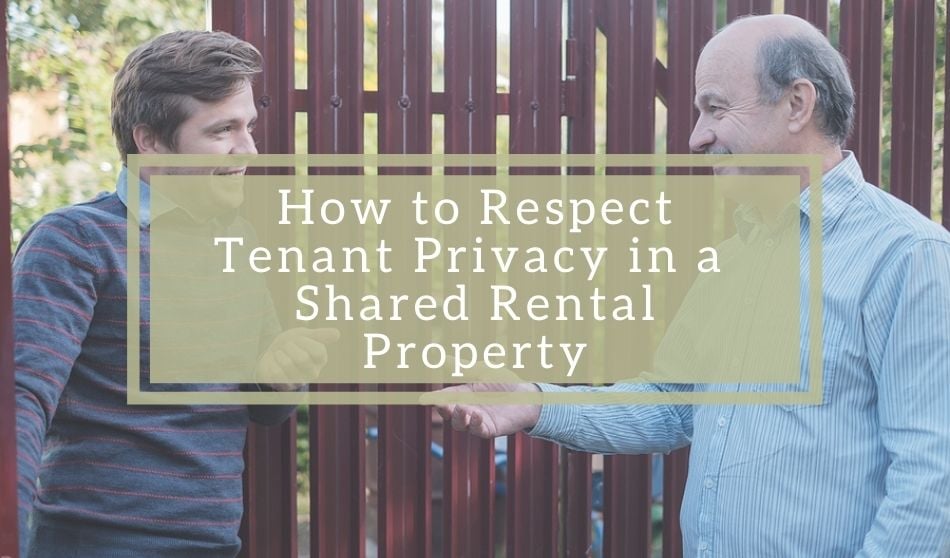
The age-old adage that curiosity killed the cat also applies to tenant privacy. It takes only a few seconds of curiosity to kill a healthy relationship with your tenant and land yourself in legal complications. In a world where renters view most landlords with negativity and occasional disgust, it’s best to display clear and consistent respect for privacy at your shared property.
Privacy rights can feel complex when you share a property with your tenants. After all, it’s apparent when they disregard contract rules like inviting extended guests. However, it’s vital to operate with professionalism as you navigate this relationship dynamic.
Keep reading to discover six ways to respect your tenant’s privacy.
Find Good Tenants
Eliminate the problem before it occurs by finding good tenants. Renters who pay on time and have clear background checks and high credit ratings are usually easier to trust. Why would you feel suspicious of someone who is friendly and passes inspections with flying colors?
Do your research in advance and adjust the price of rent to be competitive for the area. You want to attract the best tenants without being left with an empty room. If you advertise wisely and set high expectations, you’ll narrow down the applicants and causes for concern.
Ultimately, a person can sound terrific on paper but clash with the landlord. Reduce these chances by screening potential renters and offering a trial period. Use the trial period to give applicants — and yourself — a chance to back out before entering into a lengthy contract.
Give Written Notices
Unless it is an emergency, it’s illegal for landlords to enter a tenant’s space without prior notice. Find out the legal regulations for your state to establish your rights as a landlord. Several states have statutes limiting entry, so it’s best to do your research.
Regardless of notice, your rationale for entering the premises must always be reasonable and professional. Typically, the landlord must provide the renter with at least 24 hours’ notice and receive permission before entering.
Acceptable reasons for entering a tenant’s space include:
- Conducting repairs.
- Carrying out a formal inspection.
- Showing the space to prospective tenants or buyers if the lease is ending.
- Gaining access if there’s an emergency.
Avoid the Temptation to Spy
When you live on the same property as your tenant, it can be tempting to spy. It’s somewhat natural to feel this way, especially if you are concerned that they are disrespecting the contract or your accommodations. However, you have moral and legal obligations as a landlord to respect their privacy.
Use housing inspections as your way to legally check-in on renters. If you see something during a housing inspection — like a contract violation — address it. Otherwise, keep your peace of mind knowing that you have a housing deposit should anything go wrong.
Avoid the temptation to spy by adding privacy fences and soundproofing materials where applicable. If you live in the same house or apartment as your tenant, stay away from their space. Install a lock on their door and keep the key in a safe to only take out on inspection days.
Abolish Arbitrary Rules
If you live with your renter and their behavior worries you, creating new rules can sound appealing. Requiring cleaning once a week — or noise restrictions all day — may sound like helpful rules to set in place. Laws protecting tenants from overreaching rules will vary from state-to-state, but be sure you know your local and state guidelines. For instance, in Washington under the Landlord-Tenant Act within the Revised Code of Washington, you do not have the right to restrict access to common areas or create arbitrary rules based on their behavior.
You must keep the original rules as described in the contract. If you’ve made a verbal agreement, those rules must be upheld if discussed at the start of the rental agreement. If the tenant is on a monthly contract, it is possible to update the rules at the end of the month. If you decide to update the agreement, it must be in writing, and the renter must be given a 30-day notice (note that this timeframe can vary so double-check your state laws).
Address Issues Professionally
A rental contract is a legally binding agreement between the landlord and the tenant. This contract signifies a business agreement, so keep things professional. If your tenant breaks the rules, provide them with a series of notices and then evict them if needed. Save yourself time and energy by handling problems civilly rather than getting emotionally involved.
If you suspect that the tenant could be engaging in lease-breaking activity, use a housing inspection to confirm your concerns. Always document any warnings that you provide your tenant. Remember that if the lease adherence is ever evaluated in court, your actions should be without reproach.
Encourage Open Communication
Communication is the key to a healthy relationship. Encourage open communication from the start of the agreement, but remember that this is a business relationship, and it’s essential to respect your tenant’s privacy. This rental space is their home. How would you feel if someone entered your safe space without your permission?
Keep the conversation casual when you aren’t on official landlord time. Make sure to discuss formal matters during designated periods, like quarterly inspections. When possible, automate interactions like paying bills. Automating payments will help to simplify the relationship and keep things positive.
Respect Will Keep Life Simple in a Shared Property
In a shared property, the lines between landlord and roommate can feel blurry. Keep the relationship professional by respecting your tenant’s privacy and following the contract. If situations arise that cause concern, follow proper legal channels, and document each step you take.
Above all, as challenging as it may seem, remember to put yourself in the position of your tenant and honor the agreement you’ve arranged.